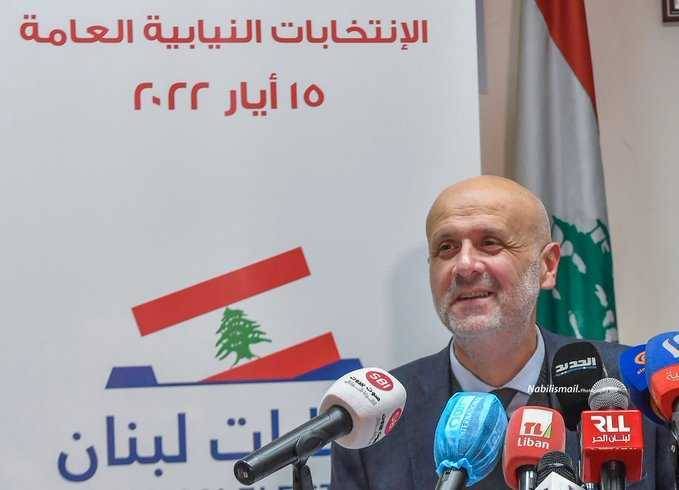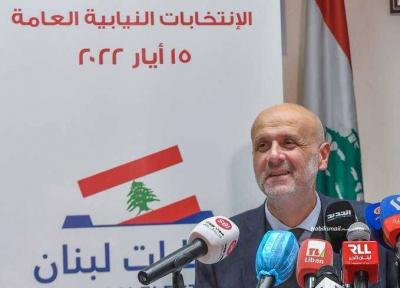The central outcome of the parliamentary elections has resulted in a resounding blow against the political establishment, stripping the Iranian regime's majority from Lebanon's grasp. Despite the Shiite duo returning their 27 deputies to parliament and restoring the previous parliamentary scene, they have lost much, starting from the low voting percentage within their intimidated environment to losing the existential battle against the Forces' candidate Antoine Habchi in Baalbek-Hermel. This occurred despite their efforts to exert pressure and wage a major offensive against him using all means of power within their strongest area of influence. This led to a significant victory for Habchi, culminating in a setback for Hezbollah's allies, of whom Secretary-General Hassan Nasrallah had stated that his battle was to get them elected, with barely half of them succeeding with great difficulty. Moreover, the electoral process was marred by numerous violations recorded by monitoring organizations, which the party could not overcome. Notably, candidates within the Syrian regime's orbit were absent from parliamentary discussions across various regions from the South to the Bekaa and the Mountain.
As for the Free Patriotic Movement, the results reflected public frustration with its performance and the practices of the presidency it represents, falling in its stronghold in Jbeil and losing seats in Christian regions from Metn to Kesrouan and the Mountain. Their leader, Gibran Bassil, barely secured a seat—surpassed by media colleague Ghiath Yazbek, who recently entered politics on the Forces' ticket. The Lebanese Forces emerged as the dominant force in the Christian scene, increasing their parliamentary representation to above twenty seats, affirming the decline of the Hariri-led bloc, as Saad Hariri struggled to unify Sunni voter support, while his brother Bahaa saw no candidate elected despite his media campaigning during this electoral period.
The change-makers from the revolutionary forces and civil society made significant inroads across multiple regions, particularly in Chouf, Aley, Bekaa, and the South, succeeding in breaking into a parliament that had previously closed its doors to them during the October 17 uprising. The electoral test for the state passed successfully, even though state authority was overshadowed by the reality of armed groups, exemplified by a security officer advising a beleaguered electoral representative to manage her situation out of fear of the prevailing forces, contrasted with a religious figure in Zahle throwing stones at "Shiite" supporters attacking the residents of Baalbek.
The significant matter remains what these results will lead to and the capacity of sovereign forces to alter the balance of power and effect the expected change to pave the way to extricate Lebanon from its current hell, especially since the coming governmental and presidential milestones are likely to be highly complex.
In light of ongoing vote counting by Interior and Municipalities Minister Bassam Mawlawi, who began announcing results from five in the afternoon, Prime Minister Najib Mikati monitored the electoral counting process from his office at the Grand Serail with Interior and Justice Ministers Henry Khoury. The Prime Minister was informed that vote sorting and result aggregation was continuing smoothly without significant issues. He noted the strain on administrative processes due to counting both local and overseas votes concurrently, praising the lengthy electoral day progress. He expressed satisfaction that the government successfully completed this electoral obligation despite the prevailing sharp political divisions and tensions.
Mikati stressed that any irregularities during the electoral day could be handled legally and politically, as the situation required a deft approach to avoid impacting or disrupting the electoral process. He emphasized that all political forces represented in the new parliament must work promptly to complete constitutional steps, as the challenges we face cannot afford ongoing disputes at the expense of priorities. He acknowledged the legitimacy of voices both for and against the elections, asserting that the government of "Together for Rescue" successfully executed its ministerial program with fidelity, hoping for cooperation among all in the upcoming phase to fulfill the required rescue stages for the sake of Lebanon and its people.
Hezbollah has acknowledged its parliamentary loss, with sources allied with the party indicating to Reuters that "it is likely that the 'party' and its allies will lose the parliamentary majority," with estimates suggesting they will secure no more than 64 seats out of 128.
Iran has also noted, in its first response to the Lebanese parliamentary election results, that it respects the voters' choices. Iranian Foreign Ministry spokesman Saeed Khatibzadeh stated, "Iran respects the Lebanese people's vote. Iran has never attempted to interfere in Lebanon's internal affairs."
Former Prime Minister Saad Hariri tweeted that "the elections are over, and Lebanon stands at a new crossroads," asserting that the true victory lies in bringing new blood into politics. He affirmed that the decision to withdraw was correct and essential for shaking the pillars of political imbalance, though it does not mean abandoning responsibilities.
Saudi Ambassador to Lebanon, Walid Bukhari, echoed on Twitter, quoting a verse that encourages believers to support God so that He may support them.
Samir Geagea, head of the Lebanese Forces, affirmed a kind of Shiite boycott, noting that the Shiite duo's attempts to extend voting hours due to low turnout among Shiites in Jbeil were rejected. He mentioned that, for instance, the Shiite turnout in Jbeil dropped by approximately 2000 votes compared to 2018, illustrating a 20% decrease.
Geagea opted to wait for the final voting percentages to compare to the 2018 elections, noting that while turnout increased in areas with reformist movements, it decreased in areas dominated by Hezbollah and Amal.
Geagea assured that the next parliament would be better than the current one, allowing for necessary changes, albeit acknowledging the complexity of achieving such goals.
In a related note, member of the "Strong Republic" bloc, Deputy Shoukry Dakash, criticized late election result fluctuations and indicated that the Lebanese Forces would challenge the results to honor voter intentions.
The Lebanese Association for Democratic Elections (LADE) highlighted that its initial report shows severe violations during the electoral process, noting shortcomings from the Interior Ministry in applying the law and attacks on candidates and voters.
UN Special Coordinator for Lebanon, Joanna Wronecka, congratulated Lebanon on the timely execution of the elections, recognizing ongoing challenges, particularly in restoring citizens' trust in state institutions.




